Lance Armstrong meets his accuse Emma O'Reilly
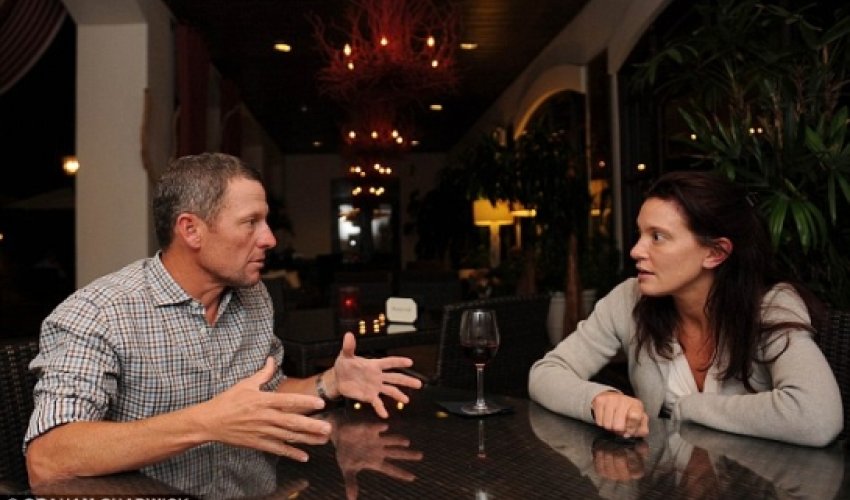
Lance Armstrong has spent the past year dealing with the consequences of his drug cheating but here, in a quaint little town in Florida, he is about to face the woman who brought him down. Emma O'Reilly was a soigneur on the US Postal cycling team Armstrong represented in winning the first six of his seven Tour de France titles. Her job was to feed him, massage him, take care of his every need so he could focus on riding his bike. Not only that; she used concealer from her make-up bag to cover up needle marks on his arm and travelled to Spain to collect banned substances on his behalf. She was also the person who first told the truth. The whistleblower who first spoke out because she could no longer stand by and watch Armstrong and his team-mates cheat in a culture encouraged by the officials and team doctors she feels should also be held to account. Twenty-six riders died in suspicious circumstances in less than two decades. For that, Armstrong trashed her reputation, publicly branding her an alcoholic whore and including her in the legal proceedings that she feared, for years, would ruin her. 'I thought he was going to take everything from me,' she said. Today they are reunited, the accuser and the drug cheat, for the first time since she exposed him nine years ago. They haven't met, in fact, since she resigned in 2000 because she could not accept the drug culture that had developed within the US Postal team. But now she needs closure. She needs to look into his eyes, into his soul, and see that he really is sorry for the way he treated her. 'It was too big a situation to just have a chat about it on the phone,' she says. 'I wanted to eyeball him. You can't keep kicking an injured dog. I wasn't here to humiliate him. But I wanted closure.' When Armstrong's mea culpa moment arrived in a televised interview with Oprah Winfrey in January, he named O'Reilly as one of those to whom he owed a personal apology.Now Armstrong has travelled from his Texas home to finally meet again. She hears him before she sees him. Standing at the hotel reception desk, she is suddenly aware of that distinctive Texan voice. There are slightly awkward smiles, a brief hug. O'Reilly has never been one for public displays of affection, so much so that it used to be a bit of a joke on the US Postal team. Armstrong has come alone, while O'Reilly's desire to retain some control of the situation led to her asking me to accompany her on the flight from Manchester to Orlando to report on their meeting. It should be made clear that she paid for her own flight and accommodation. But why now and why the invitation to a journalist to join her? Not because she is frightened but because she figured once Armstrong had told of their reunion and word began to spread, she would face an avalanche of questions. And because, for all the hurt and stress Armstrong caused her and her then partner, Mike Carlisle, there is also part of her that feels compelled to defend him against what she now thinks is becoming a serious injustice.For O'Reilly, it was never just about bringing down Armstrong. It was about speaking out to protect the riders and expose the people who allowed a culture of doping to develop in the sport. 'I took what you said about me on the chin but what upset me more was the way it hurt my boyfriend at the time, Mike,' O'Reilly says to Armstrong. 'You're a lad's lad, Lance, and if someone had said that about your girlfriend you'd be very upset.' Armstrong asks that they discuss Mike, already by that time battling the cruel physical effects of multiple sclerosis, when they head out for dinner. O'Reilly agrees. 'I never expected to see Emma,' he then says. 'I wanted to talk to her. I felt it was necessary to have a conversation because there were definitely people that got caught up in this story who deserved an apology from me. When I reached out in January it was to talk. Emma, I appreciate, wasn't ready for that. But it's good that, tonight, we are doing this in person.'At the time, when I said what I said about her, I was fighting to protect a lot of positions. But it was inexcusable. It's embarrassing. I was in a conference room, giving a legal deposition, and I had no idea it was going to get out. But that doesn't excuse it. I guess you should always assume that, in that setting, the whole world will watch it the next day. It was totally humiliating for Emma. And if I saw my son do that, there would be a f***ing war in our house.' To dismiss O'Reilly as naive or as some kind of stooge for Armstrong would amount to a grave misjudgment of this tough but compassionate 43-year-old woman from Dublin. She trained as an electrician, then as a sports masseuse, and worked first for the Irish cycling team prior to landing a job on the American outfit with the biggest budget on the pro tour. From there she would build the thriving business she has today: a sports injury clinic in Cheshire. This is how she justifies her actions. 'I implicated other riders as well as the management of the team. But it became about Lance when I felt I was trying to help clean up cycling and protect these young lads who were being pressured into taking drugs.Armstrong had retold the story of the incident that was central to O'Reilly's original revelations - his 'positive' for a corticosteroid during the 1999 Tour that marked his first victory and his incredible return from life-threatening cancer. That launched a multi-million-dollar industry that not only made him a global icon but extremely rich.It was agreed, claimed O'Reilly, that a team doctor would backdate a prescription for a steroid cream for saddle sores. Much to the surprise of some observers at the time, cycling's world governing body, the UCI, did not hesitate in accepting the explanation. Armstrong has admitted that a backdated prescription was used to get him off the hook. He has since warned that, when he finally appears before a truth and reconciliation committee, he will give evidence that will 'sink' former UCI president Hein Verbruggen. But now, in O'Reilly's company, Armstrong reveals more detail. He suggests the plan was hatched at Verbruggen's insistence, and when I point out this is a new, explosive claim, he merely shrugs: 'Man, I'm that busy talking to lawyers and going over things that have happened, I can't remember what I have and haven't said. You spend a day in a room with a team of lawyers. It's like 24-hour root canal.'It's funny, these stories are so prevalent in my life. What I remember was there being a problem. I'm not sure if it was a positive but there were traces found. I don't know if it technically crossed the line. But anyway, it didn't matter. I can't remember exactly who was in the room. But Emma has a better memory than I do.'But the real problem was, the sport was on life support. And Hein just said, "This is a real problem for me, this is the knockout punch for our sport, the year after Festina, so we've got to come up with something". So we backdated the prescription.' The 1998 Festina Affair that Armstrong refers to was, prior to his downfall, the biggest drugs scandal to rock the world's most glamorous bike race.In an interview in January, Verbruggen, who remains an honorary member of the International Olympic Committee, admitted the UCI would inform riders if they had an unusual test result. He has, however, consistently denied being complicit in a cover-up to protect a rider who was seen as the sport's cancer-surviving saviour in 1999. On Sunday, Verbruggen was unavailable for comment.Armstrong insists he is being punished for more than his drug-taking. He says he is paying for the aggressive tactics he employed against people such as Emma. 'If it was just the drugs I could maybe be forgiven,' he concedes. 'But it's what happened off the bike. I wanted to fight off the bike as well. 'I can't get around to each of every 10 million cancer survivors who support me, so I am concentrating on the people personally affected, such as Emma.' He does wish to point out to O'Reilly that, contrary to what she believed, he never threatened her with legal action in England. 'The personal attack from Lance I could deal with,' she says. 'What was more difficult was the stress caused by the fear of someone of Lance's wealth and power coming after me legally. Mike and I thought we were in danger of losing everything. It terrified us.Only last week Armstrong said he would tell all to an independent inquiry, set up by new UCI president Brian Cookson. But he also made the point that he felt he was being treated unfairly. Those members of the US Postal team who agreed to confess all to USADA had been offered six-month bans in return. Armstrong, serving a life ban, has been told the best he can hope for is a reduction to eight years.'If everyone gets the death penalty, then I'll take the death penalty,' he remarked last week. 'If everyone gets a free pass, I'm happy to take a free pass. If everyone gets six months, I'll take six months.' Here he elaborates. 'This is going to sound very arrogant, but if I don't walk into that (truth and reconciliation) first, who follows?' he says, before highlighting what could be perceived to be the concerns of his lawyers.'The protection would have to be so high. There is a merit in saying we need a system that means that 22-year-old kids don't ever have to make that choice again. But do we draw a line in the sand and just say that's it, let's move forward?'Armstrong claims he will not be protecting anyone at the UCI even if the loyalty he retains towards certain members of his support team could remain an issue and a reason for further criticism. Over the course of the interview, there are contradictions. At one stage he says he would need '20 Oprahs' to tell everything. Later he talks of not being sure how much more there is to tell. 'Don't think I'm protecting any guys after the way they treated me, that is ludicrous,' he says. 'I'm not protecting them at all. I have no loyalty towards them. In the proper forum I'll tell everyone what they want to know. I'm not going to lie to protect these guys. I hate them. They threw me under the bus. I'm done with them.'I ask him why he remains in contact with Michele Ferrari, and why he even allowed Ferrari to oversee the more scientific aspects of his training in his attempts to take the triathlon world by storm prior to receiving his ban from competition. Does the association not remain damaging? 'I care for him,' he says.As an aside he tells a brief story about a man he still considers a genius. 'This has never been heard before but Michele warned us in 2000 that they were close to a test on EPO,' he says.'We all assumed it was going to be business as usual but Michele said "No EPO". We continued to use some after that but not in the same way and not as much. We were much more careful. But then the whole Actovegin story breaks during the Tour (a French film crew had followed US Postal doctors and seized medical waste they had dumped) and they test the samples for EPO but there is no EPO. It's crazy, but if Michele had not made that change it's over in 2000. Everything is over.' He admits, too, he was using performance-enhancing substances to win the 1993 world title, but insists it was 'low octane rather than high octane'. In other words, not EPO. 'Did I drink water and eat Snickers bars? No,' he says. 'What I did to win the Tour between '99 and '05 was this much and in '96 it was this much,' he adds, widening his arms to demonstrate. Does he think the 1996 levels contributed to the onset of cancer a year later? 'It's a fair question and one I've asked myself, but no,' he says. 'I've had conversations with the doctors along the way and it never caught their attention.'Quite what Armstrong wants from life, from his future, not even he seems sure. He talks of spending more time with his five children, of one day being able to reconnect with the Livestrong cancer foundation that had to ask its founder to leave when he finally confessed.'That is going to take a long time,' he says. And he hopes to emerge from the legal cases with something left of his personal fortune ('which is not as much as people think it is'). This almost unhealthy desire to remain a top-level competitor, when he is now 42, says much about the man. It clearly angers him that his detractors only now look at the drugs and not beyond, at the hard miles on the road and the natural ability. Is he somehow trying to validate his performances on the bike by beating the world's best triathletes? Is he trying to say that, drugs or no drugs, he is one of the great endurance athletes?'I don't know that that's a bad thing,' he says. 'I think I could be the world champion at Ironman. My performances in the races leading up to the ban told me that. And I think there is some merit in saying this is what you can do clean.'I am a competitor. If there was a race tomorrow and they said you can go do it, I'd be there. 'Listen, we are talking about one thing here: cheating. None of my competitors have ever come up to me and said, "You cheated". So then the question is, well, who got cheated? The fans, my friends, the foundation, other people who came in the crosshairs. They got cheated. And I'm very sympathetic to that.'But those seven years that are now blank on the Tour records, nobody will ever be able to claim them. Because they can't. 'You know what, though, I don't think I'll ever compete again. Eight years… in a way it's sort of weirdly flattering that the world views me as an uber-competitor who has to compete.'He continues to insist that, contrary to certain claims, he was 'clean in 2009 and 2010', when he made his comeback. And he complains that he is being punished for the abuse of power as much as the drugs.'I was an asshole but that isn't an anti-doping violation,' he says. But he knows there is little sympathy out there.'I get asked questions and I answer them but sometimes it's now what people want to hear,' he says. 'I might say the last year has been rough, or I might point out there's been a massive loss of personal wealth. I'm not asking for people to be concerned about me. I'm just answering the question with facts. I'm not playing the pity card.'The reality of this is that it's my fault. And people want to hear me say it's my fault. I can't blame anyone except for me. 'I'm not one of these guys who gets too warm and fuzzy. I'm not that guy. Oprah was interesting. Many people in the world watched that and thought, "This is bullshit, he's playing us". But my closest friends and family were like, "I've never seen that side of you before". To the average person it was too much. What? You did that? But for the cycling fan it wasn't enough. You didn't tell us enough. If I had to tell everything I'd need 20 Oprahs.'And when I talk about the ban from competitive sport, people also don't want to hear Lance Armstrong complaining that he has been treated unfairly. 'I made my bed. I have to sleep in it. And I have to come to grips with that.' Done talking on the record, Armstrong and Emma disappear for a meal in a town. 'The atmosphere over dinner was fine,' O'Reilly tells me the next morning.'It was a bit stilted because I guess we were two people who hadn't talked for a long time, who had more than a bit of history. But we had a chat about people we knew, about our families. I feel he was straight when it came to this meeting. He let me say when and where, he booked his flights before he knew you were coming and he came alone.'I was thinking, he never actually used the word sorry. But I wasn't looking for an insincere apology. There are different ways of saying sorry and I felt what he did say was genuine. 'Now people might think I'm under Lance's spell but I'm not. I wasn't when I said what I did about him in 2004 and I'm not now. He was a jerk. He was a bully. 'But there are wider issues here and I wanted to address those, too. That said, I wanted closure with him and today I feel I have it. This part, for me, is over.'(dailymail.co.uk)ANN.Az
Similar news
Similar news
Latest news 
More news 
























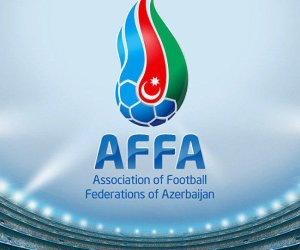
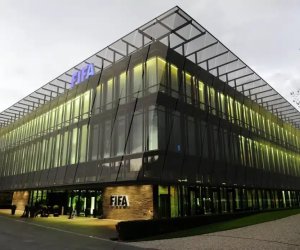
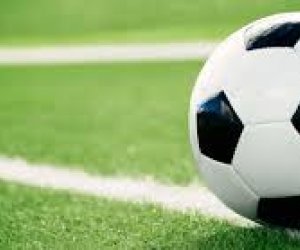
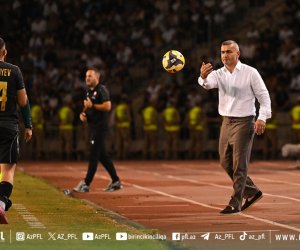
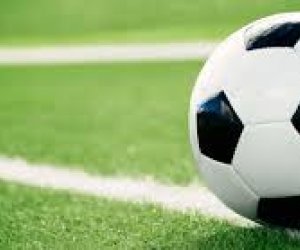
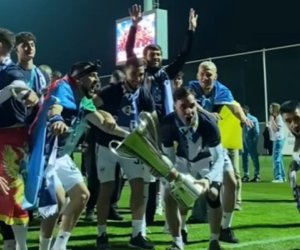
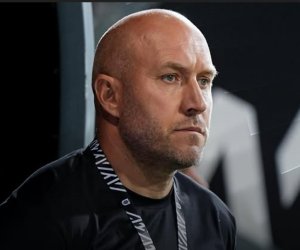
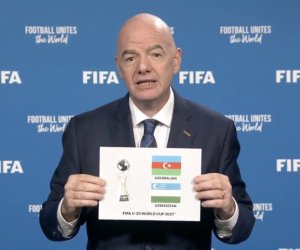
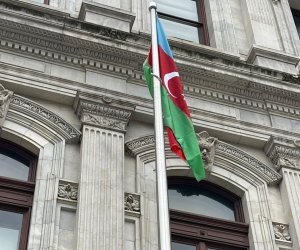


 Photo
Photo 



 Video
Video 

